As an artist, there’s a good chance you’ve been called “lazy.” You’ve probably also felt like you’re not as productive or prolific as you could be. Let these two factors mingle around in your brain long enough and you’ll start believing that you’re the exact type of stereotypical “lazy artist” that people might sayyou are. There’s a lot of ups-and-downs in the life of an artist – some of this is due to the nature of being a creative and some of it is just life.
I’ve had years of experience working as an animator, working from home, making my own hours and setting my own deadlines to learn what it actually means to be productive when your career is being an artist. Outside of the full-time freelance work that pays the bills, I’ve created animated shorts, behind-the-scenes videos, tutorials, have a weekly podcast, and wrote a book on animating “tradigitally” in Adobe Flash called (obviously) Tradigital Flash.
Let me show you some of the things I’ve learned.
You can also listen to us on SoundCloud
PREAMBLE: “Being lazy is OK – Burnout is not”
Lazy is a four-letter-word. Apart from actually having four letters, the thought is that anything lazy should be purged from a productive life. It brings up images of wasting time, money and talent on vapid activities like watching TV, sports, and playing games. But really, it’s an image problem. The activities themselves are just low-impact recreation. Overdoing anything is bad, so yes… if you’re lazy all the time that’s problematic. But if all you do is work, you can burn yourself out, which is a worse fate.
lazy
/ˈleɪzi/
adjective – “unwilling to work or use energy.”
There could be a lot of reasons why someone would be hesitant to use energy:
-
resting the body for an upcoming endurance-testing project
-
clearing the mind for creativity
-
recuperating from a marathon session of work just finished
-
preparing for actual physical mortal kombat
The bottom line is being lazy conserves energy. That’s a good thing. It is difficult to simply get more energy (although there’s some tips for that at the bottom of this post) so conserving and managing your reserves is a skill you need to have/develop.
Do you know how much good can come from being lazy? There’s a thing called the Default Mode Network (DMN) which basically is like your brain idling while you’re awake. This is where you daydream, have introspective thought, and retrospective analysis (like replaying something that happened earlier).
People need rest. By placing a stigma on an unwillingness to work or use energy, a stigma gets placed on the entire concept of down-time. Spending your free time relaxing or having unfinished projects doesn’t make you a good-for-nothing. A distinction needs to be made about avoiding responsibility and taking command over how and why you use your time and energy.
FROM PERSONAL EXPERIENCE...
I’ve said it before that the moment I knew animation was the career for me is when I worked for 52 hours straight, without sleep, to turn in a paid freelance project only to take a four-hour nap and then wake up to work on my own personal project which offered me no money. I was in my 20s. Even just writing that sentence stresses me out today.
It’s not that I don’t still love my work – I do – but that kind of intensity can only last for so long. For me, it was just long enough to get hooked… now I need my rest to work. It’s all about the long game because burnout is a very real thing. The real threat to long-term productivity is not being lazy, it’s being overwhelmed… it’s burnout.
Laziness is not a lifestyle, but neither is productivity. If all you have is productivity, you most likely have a ton of stuff with little-to-no substance. If all you have is laziness, you probably have an overload of inspiration and nothing to show for it. A balance needs to be struck.
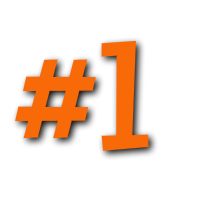
"Write down everything so you don’t have to remember”
I have a good memory and I use it. But no matter how great your recall is you’ll eventually forget something.. Knowing that you could forget something important puts extra pressure on you to make sure you remember everything.
Do a core dump of information you’re keeping in your head. This includes:
-
tasks
-
goals
-
inspirations
-
thoughts
-
dates
-
everything!
By writing everything down on paper you don’t have to worry about a thought, schedule or task getting lost in the shuffle throughout your day.
MY METHOD:
-
“the master list” (weekly)
On a large piece of paper, write everything down (see above). Then take out another paper and organize that information into categories. Add to this throughout the week as needed and cross off items you finish.
-
“the agenda” (daily)
Remember having an agenda in school? You would write down things like the homework you were assigned and when it was due… like a combination of a calendar and a to-do list. Yea, you might’ve forgotten how incredibly helpful that is! At the end of each day I’ll write a couple tasks down for the next day to do. This mostly includes scenes I need to animate, emails to send and errands to run.
-
“micro-goals” (during every project)
When I’m working on something like an animation, I will take what I need to do and write it down on sticky (“post-it”) notes. So for instance if I’m working on scenes 1-5 on a project, I’ll number them and write things like “lipsync,” “rough animation” and “fx” after them (whatever’s needed).
As I work through the project, I get to cross each of those steps off the list. Feels so good! Here’s a photo of the one I used to finish up my “Saving Christmas” animated short.
-
“calendar” (whenever needed)
Personally, I use google calendar but you can use anything really (ical, outlook, etc). I have different calendars for different tasks like work, animation, podcast, blog, collab, etc. and each has a different color. Having separate calendars means that I can view only one topic at a time for a clean look and seeing all the different calendar colors at once also doubles as a visual representation of how overwhelmed I am! If there’s too much on the calendar, it’s time to shift some things around.
**optional “productivity apps”
Evernote, Any.do, Wunderlist
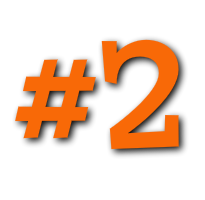
“Audit your day to know what you actually do”
We’re not talking finances. I say “audit” because “time is money” and we need to know how much time you actually spend doing what you do (whatever that is). You may feel like you don’t have enough hours in the day to get things done but don’t know where the time you do have is actually going. This clears that up. It’s about amassing information.
Honestly, you don’t even necessarily need to make any actionable changes to your day… simply knowing where your time goes is incredibly valuable to your state of mind and you might find yourself making changes without even planning it just because you’re more aware of time spent.
MY METHOD:
Carry a notebook and every time you change tasks, write down what you just did and what time it is. If you start by writing down what time you wake up, you’ll have a list of things you’ve done that day in order with a start and stop time so you know exactly how long you spent on it.
Don’t be too precious about getting everything right on the first day, so you can group things like “woke up, showered, made/ate breakfast” into one item. If you want to get more itemized later on you can. You’re not changing anything yet, you’re just taking notes on what you do… so keep it easy.
ANALYZE YOUR DAY
How you use your day is based on three things:
- the things you do
- the time you spend on them
- the energy you have for all of it
If you find that you just have too much stuff on your plate during the day, you may have unrealistic expectations… you’ll need to turn your focus on a couple things and drop the rest.
If you are spending too much time on small tasks or too little time on big ones, you may have a self-discipline problem… you’ll need to remove distractions and keep your self on task by working in short, intensely focused spurts (~30min increments)
If you find that you just have too little energy there is most likely a motivational issue there… you’ll need to be more introspective on what’s going on in your life right now and what it is that you actuallywant/need.
THINGS TO LOOK FOR...
- What starts your “lazy time?” Try shifting those trigger-moments to different parts of your day (for instance: checking twitter or youtube stats)
- How much “billable” time is actually in your day?
- What percentage of personal time makes up your day?
- Does the time spent “working” and that spent “relaxing” make sense given how much energy you have at the end of the day?
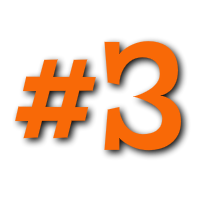
“Make your usual distractions more inconvenient”
You learned by auditing your day in step 2 what your distractions are. I bet it has something to do with a game or a social network… those are the odd-on favorites. I deleted the facebook app from my phone because I’m on the website making posts throughout the day anyway, having the additional distraction on my phone was unnecessary. If I want to visit the site on my phone I use the browser. It’s not as convenient, but that’s the point.
During the day, I keep the TV unplugged and have a nice sheet over it for the same reason. First of all, it actually looks kind of nice but it also just creates more of a barrier between me doing work and me sitting on the couch watching TV “taking a break” (since I found out that “taking a break” like that was more of a major event in my day than I wanted).
When I really need to get work done, I shut off the internet and silence my phone for a set time period (usually 1 hour).
The thing about social media (and even email) is that we tend to use it as a “productive distraction” where it feels like we’re getting things done but really we’re just responding to notifications or scrolling a feed to see if there’s anything we could like, comment on, or repost. It’s definitely beneficial to be on social media, and if you work “on” the internet it’s a must, but it’s a part of your day and not the crux of it. I check my email in the morning and in the evening. In the morning, I respond to only the most important, time-sensitive emails. In the evening I respond to everything else.
Take control over your time by limiting the temptation the distractions have over you.
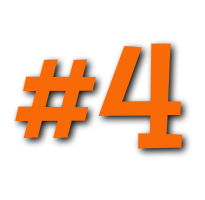
“Take your work to a different environment”
Have you ever rearranged your bedroom and noticed that the next morning you work up early and refreshed for some reason? Changing up your surroundings can really do a lot to reinvigorate your day. If you have a laptop or drawing pad (depending on the kind of work you’re doing) you can take your work on the road to a:
- coffee shop
- library
- park
… you could even make smaller changes like:
- moving from the table to the couch
- working downstairs instead of upstairs
- standing vs sitting
Changing your environment doesn’t necessarily mean venue, you could change the lighting, background media, smells, whatever! When I’m trying to focus, I like to play a speed run of an old 8-bit game (without narration, very important) like Legend of Zelda or Metroid.
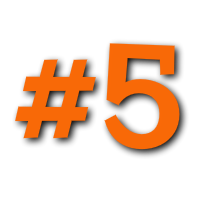
“Turn procrastination into an advantage”
There are two different types of procrastination: passive and active. Essentially they’re broken up like this:
- Passive Procrastination is running away from work… it’s bad
- Active Procrastination is choosing to not work even though you know what you have to do
Let’s say you find that you work more efficiently under pressure (like cramming for a test), procrastination is the lever you need to create that pressure.
But let’s also say that you find you can’t work under pressure and need to know exactly what you’re doing to perform. Procrastinating works well here too as long as you do it just enough to give yourself some breathing room to think about the project and prepare mentally so you can hit the ground running… and don’t over do it so you don’t have enough time to complete it.
This one goes last, obviously, because it’s all about knowing yourself. You need the data… you need the information… you need to know yourself in order to know how to motivate yourself because who’s better a circumventing limits you set for youself than YOU?!
MY METHOD:
After writing down everything it is I want to do and I’ve made my calendar of due dates (step 1), if it’s something that requires a bit more creativity than I can muster at the time I will do something else. I’ve already written it down, put it on my to-do list… it’s in the front of my mind. But by putting my focus elsewhere my brain is open to free-associate thoughts around that project and then *BANG* inspiration. I run to a notepad and write down whatever idea it is. The next time I sit down to work on that project I already have an idea of what I want to do which lowers the pressure and decreases the inertia I would’ve had to overcome otherwise.
It’s important to note that inspiration doesn’t NEED to come from a blank page... that’s a lazy self-trick. Saying that you can’t work on something because you’re not inspired to is a way to validate why you don’t want to put in the effort right now. If work absolutely needs to get done (as it often does), you can develop inspiration during the project after you’ve already put a bunch of nonsense down on that blank page. It’s all about opening doors.
And believe me when I tell you that I know all about procrastination and inspiration because after a 4 year hiatus I’m getting back to the VLOGs and my work on the Easter Bunny short and my inspiration couldn’t be higher!
NEED ENERGY? You can reinvigorate yourself with a “caffeine cat nap.” Drink a cup of coffee, set a timer for 15-20 min, lay down and rest your eyes/brain until the timer goes off. You will not fall asleep, but you’ll rest the muscles in your eyes and quiet your brain for a few moments while the caffeine works its way into your system (that sounds really druggy). When you get up, you’ll be more refreshed to finish your day. I usually do this around 2pm.
Don't forget to check out the animation I made with @YULFO83 "What's Wrong with MAN OF STEEL?" based of a discussion on the podcast right here on Newgrounds!
WHAT ARE YOUR PRODUCTIVITY TIPS? POST THEM IN THE COMMENTS BELOW
TL;DR Write down everything so you don’t have to remember everything, keep track of the time you spend during the day, remove distractions, change environments to kickstart your work, and procrastinate when necessary.
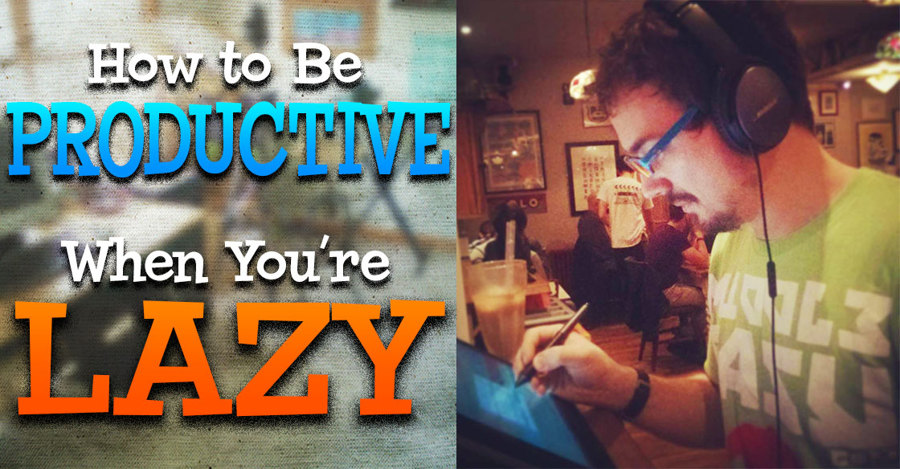

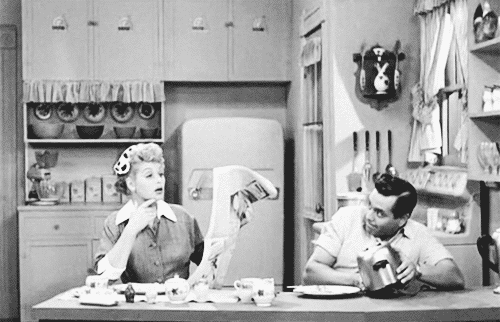
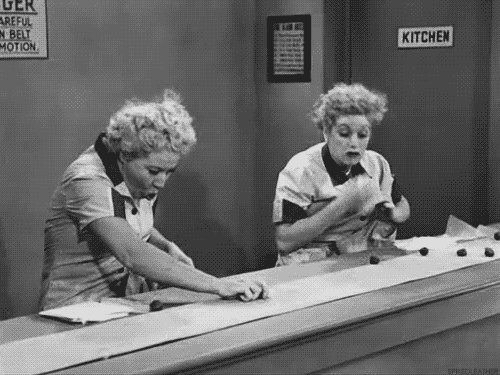
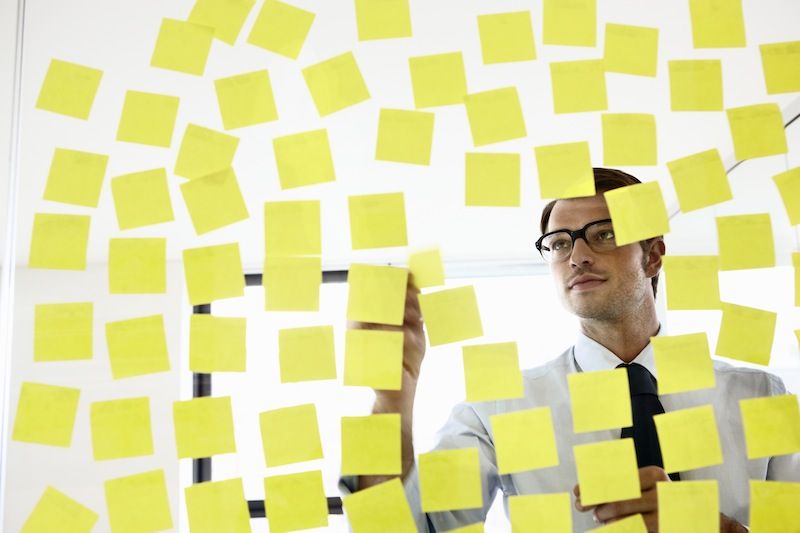
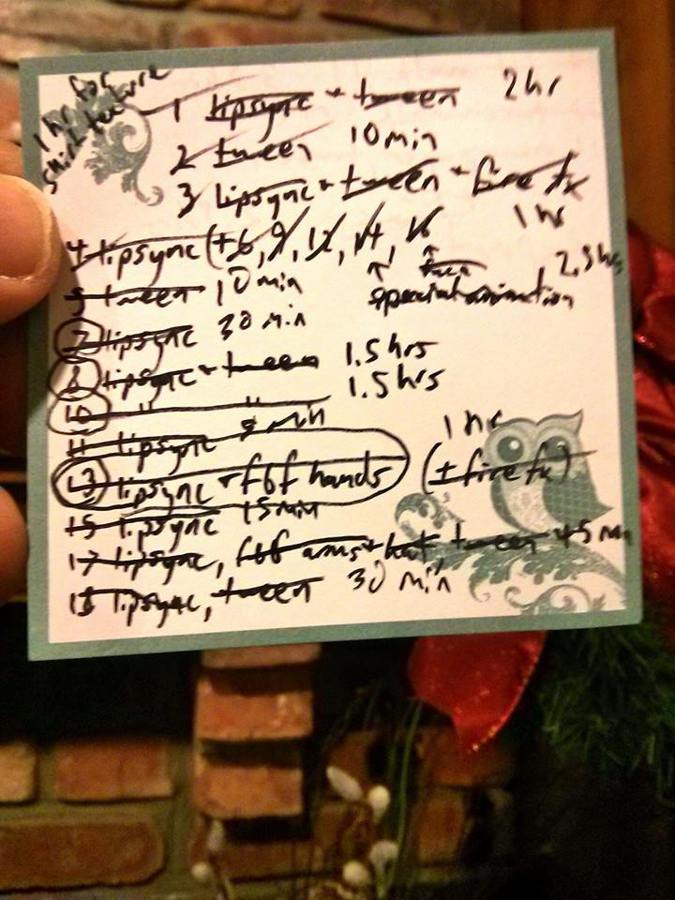


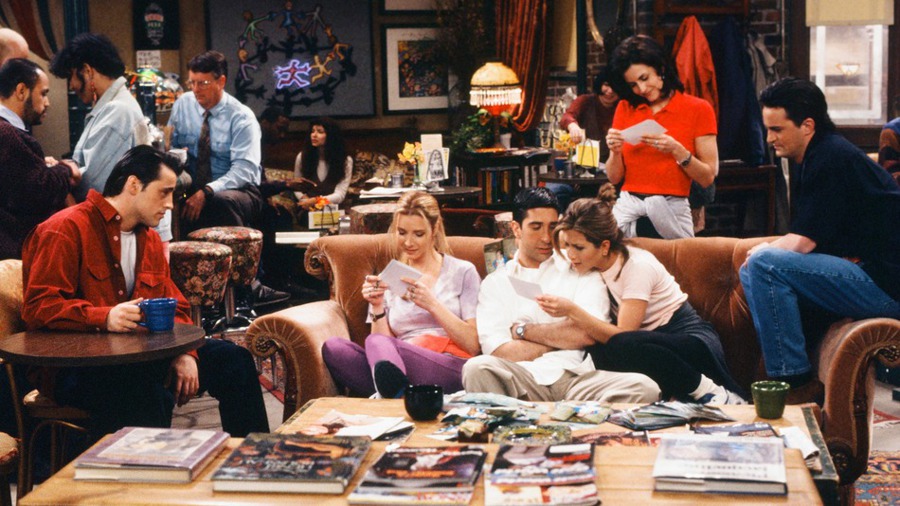
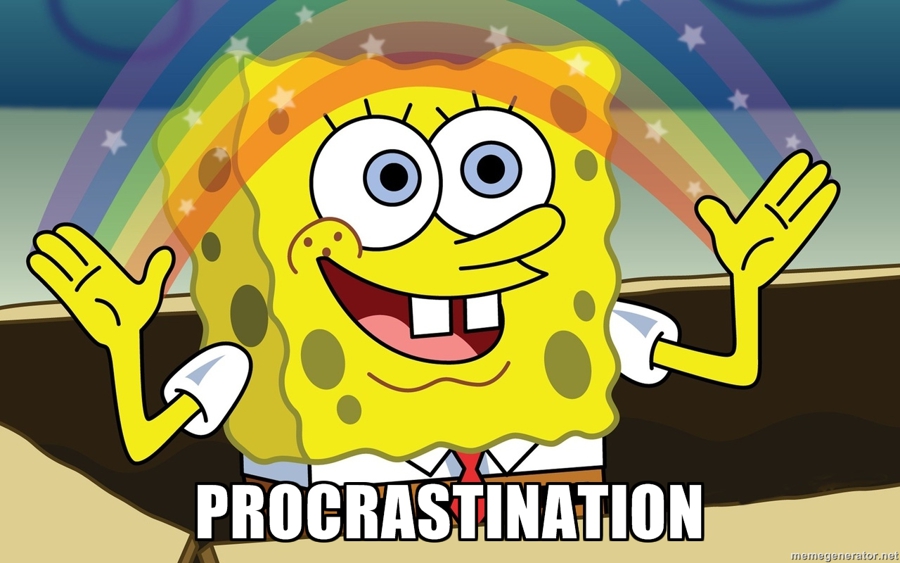
AliceMako
Remember you will die some day and thus time is the only true currency you'll ever have.
By not actively spending said wealth you'll only ever make good on the expression that you can't take it with you.
rubberonion
What do you do about sleep? Pooping?
Haha I get your point though... whatever motivates you!!